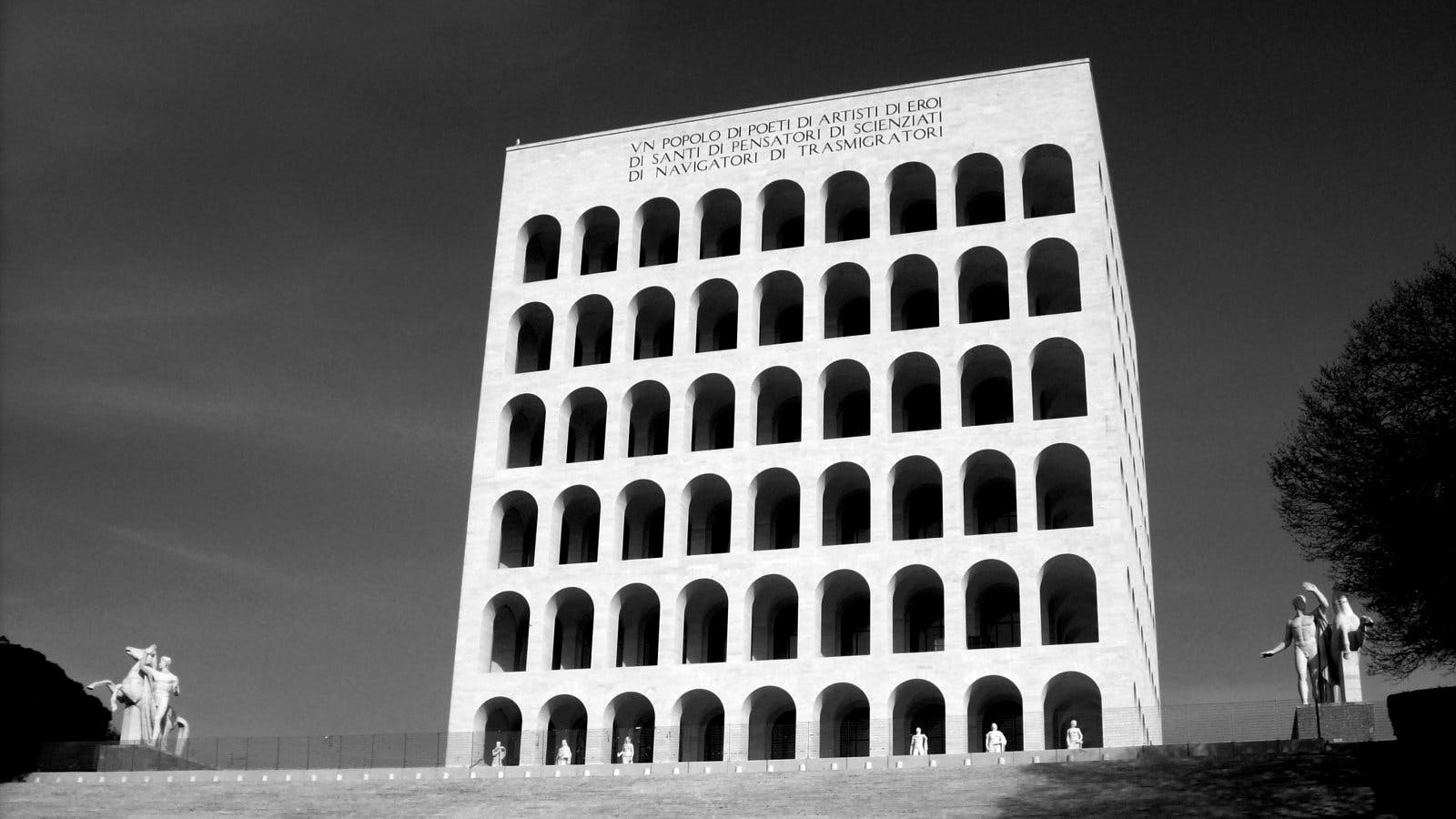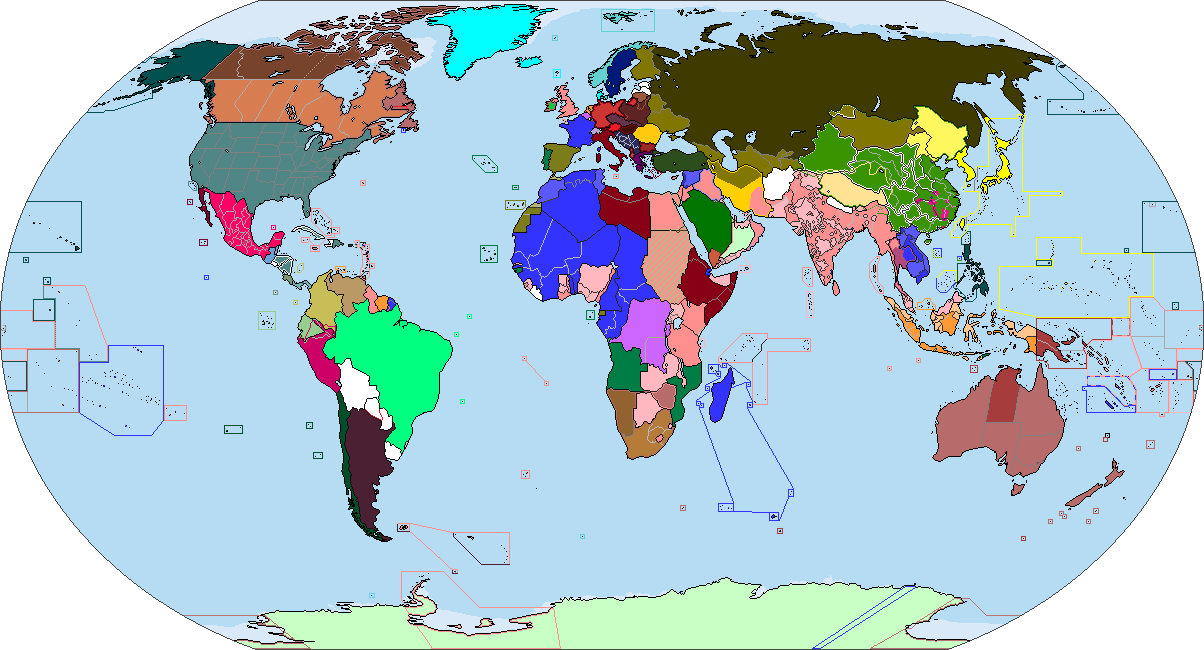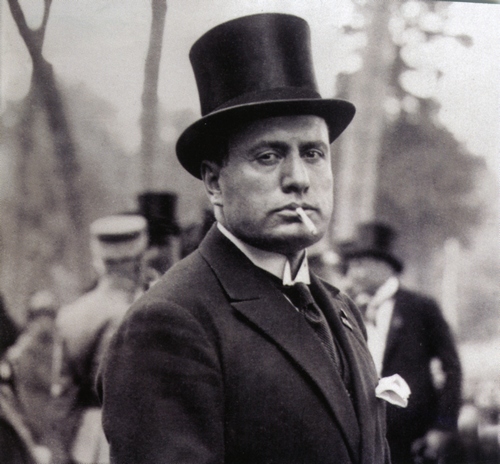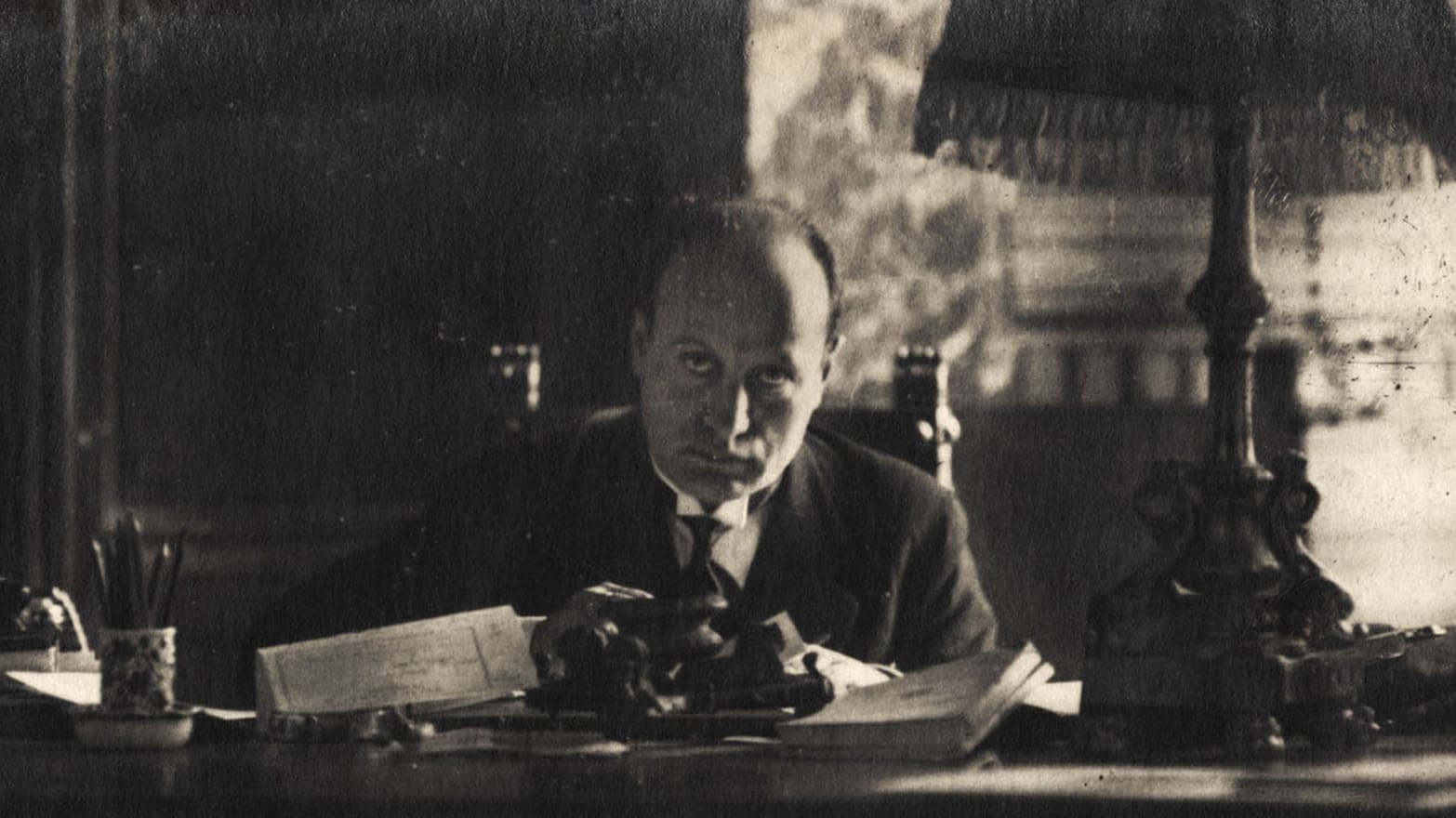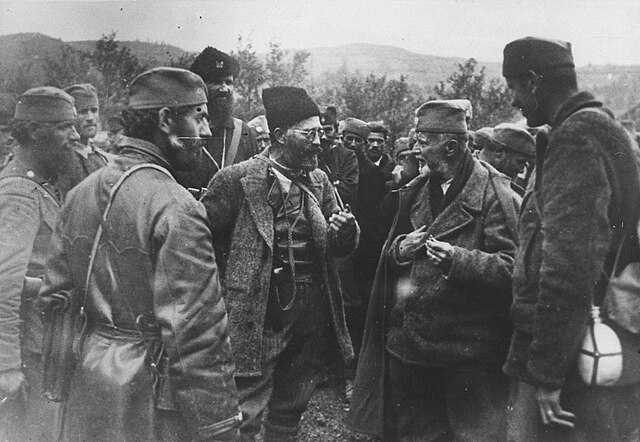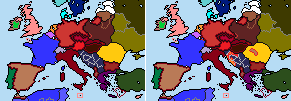Chapter Thirteen: The Commonwealth of National Syndicalist Principalist Republics (CNSPR)
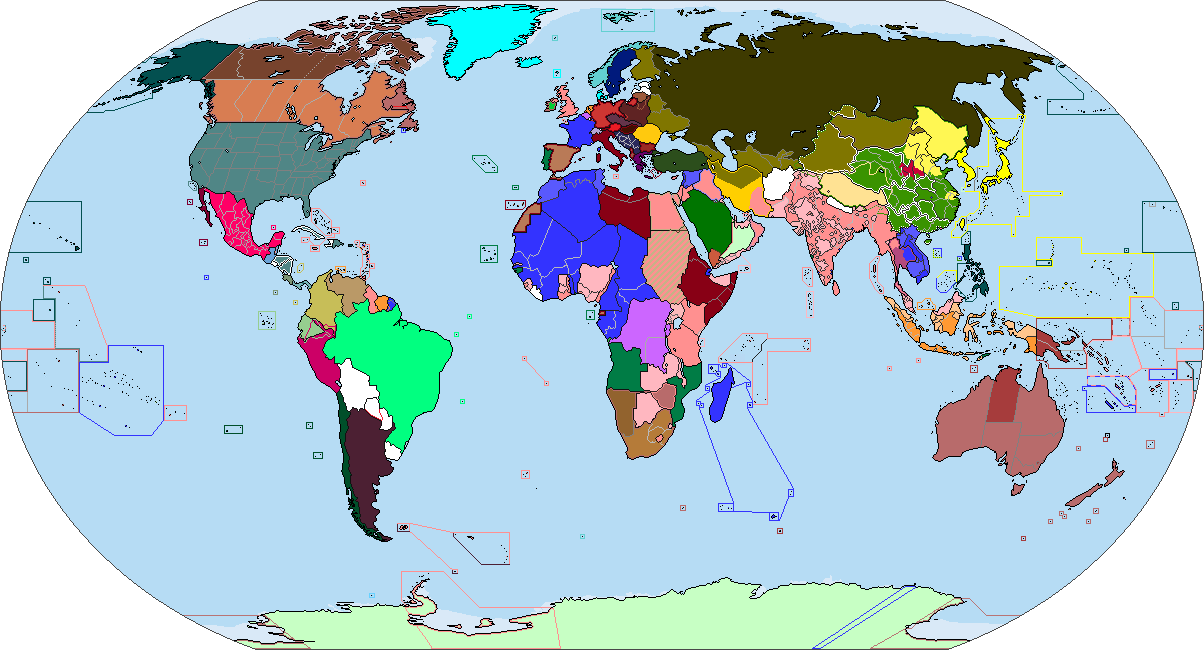
The victory in the Spanish Civil War and the close Principalist Comradship of our fellow National Syndicalist had proven that if our Principalist International (PRIINT) worked and stayed close together, we would be victorious and our modern, utopian ideology would massively start to form and shape this new world. It was clear that the reactionary powers would try to stop us. Their lack of unity however provided us with a small chance, a opportunity that we should not let pass. Luckily for us the Entente was as dissatisfied with the Treaty of Versailles end the new Order after the Great War, then we were. The former Russian Empire, now a White Authoritarian Tyranny of the Russian Dictator against the minorities and their own social classes, the natural arch nemesis of everything the National Syndicalist idea stood for. After cementing their harsh, iron rule, not by nooble blood but by military power, authority and brute force alone, they now eyed their neightboring nation states to regain territories lost during the Great War, or even conquer new ones, by enslaving other people. Great Britain on the other hand tricked it's people, by having the monarch remain at the top of the state, while a parliament tricket them into believing they were a true democracy, beside the fact that the workers did not controll the means of the production, that the farmers did not have full controll over their farms and that their soldiers were send into war by people they did not elect as their leaders. This situation is only slightly better in France, were the revolution was born that tried to swab away the European monarchies and where the National Syndicalists and other Socialist groups, parties and trade unions have a strong basis among the average worker, farmer and soldier. Many French Syndicalists, Socialists and even Anarchists supported the National Syndicalis side in the Spanish Civil War, fighting among and alongside their fellow brothers and sisters, forming connections we can now hope to build upon. To unify our struggle, to combine our forces and ambitions for a utopian paradise, I Benito Mussolini had gathered the Principalist International at our annual meeting in Roma.
It was Mai 1st 1938 and it would be a historical day for all of mankind, as the delegates of the PRIINT agreed to take our combined effort and struggle to the next level, by forming the Commonwealth of National Syndicalist Principalist Republics (CNSPR) together. The very basic idea behind this multinational principaist state of syndicalist nationalist brothers and sisters that had a few goals at once. First it was meant as a natural extension of our separate nations, parties and unions, each represented by the in total 78 delegates present. A first and major step was the formation of a Executive Committee where each of this representatives had a own section and representative, to unite our efford, while at the same time preserving our much needed individual national syndicalist views, branches and goal, to combine them into one common dream, our vision of a utopian world. The congress then decided that the Executice Committee would elect a eighteen-member bureau to run the daily affairs of the PRIINT. One of our most important main topics to dicsuss afterwards was the decision if our new states and systems should be run in a direct form of democratic representatives and elected people, or by the more direct approach via voting on certain issues directly. I knew that both versions could be used to parental guide the will and the decisions of the people to a outcome, that would benefitt the masses, that would be good for all people the same, the outcome I myself have realized would be the best. The next step was that the various Consules, Magistrates and Senatores as former independent leaders of states, parties, unions and other groups within the CNSPR would accept the documents I had sended them, including the Twenty-eight Conditions, manifested for all National Syndicalist parties. After we adopted these conditions that outlined our basic principles and ideals, making them prerequisites for any group that wished to become affiliated with our PRIINT and CNSPR in general.
It also included to distance ourself further from the failed ideas and visions of the Anarchists, Socialists and Communist, especially their failed attempts of violent uprising, including the Spartacist uprising and the Russian Civil War. It was a important decision, partly a political one to stay away from the too radical elements and to remain in open diplomatic contact with the reactionary British and French, as we needed to be their partners for now. At least until the time and circumstaces would be more in our favor, or one of the Reactionary forces like Britain, France and Russia was by internal or external crises so weakened, that a short war against one of thid reactionary states could bring victory to us and our demands, as well as bring revolution and internal change for the National Syndicalist Movement and the PRIINT into the hearts of these nations and states. But until then, even if we have trades and diplomatic deals with them, this reacionary states could and should never be trusted. The fight against them also calls for the use of their own false democratic institutions against them, by forming parties, alongside their democratic institutions, with centralist lines, where the parties, their press, propaganda and parliamentarian factions would be under direct controll of the party leadership, a leadership we would announce and even appoint if they wished to be affiliated with us and be a part of PRIINT and, or CNSPR. However, in a colonized world, were the major power of this reactionary forces came from their imperialism and colonialism, meaning that the liberation of the opressed people and civilisations who worked as their slaves would quickly bring their power and their own whole empires in he end. I believe it is poethic justice, that their reactionary, tyrannical ways fill fall victim to our liberation and enlightenment with the help of the very people these evil empires are build upon. A international united fron of our Principaists, the Peasentry and the National Citisens in the colonial countries. Therefore one of the twenty-eight conditions drafted by me on the congress mentioned that the liberation of these people and the support of democratic national syndicalist liberation movement in these colonies was one of our most important concerns.
However some National Syndicalists were still more socialist and communist then others and especially some Mecian Syndicalists and Indian Principalist Revolutionaries opposed this idea and openly advocated for a supporting National Syndicalist and even revolutionary movements in this ciuntries intead. For now we had to oppose those idea and our PRIINT and CNSPR member states (Italy, Germany, Spain, Austria, Hungary, Bulgaria, Albania, Libya and Ethiopia) had to agree to this too, as otherwise this would have driven us in direct early opposition of Britain and France, maybe even renewing their alliance and presenting as the natural ally of the Russian Tyranny, something we had to prevent for as long as possible. After all this question devided us further from the Anarchists, Socialists and Communists and even split and divided the PRIINT and the CNSPR from some of our National Syndicalist parties and groups. A split that was nessesarry, as those unwilling to follow a united, unified and strong course only would further divide our movement and it's ideals in the future, as long as it served their own selfish ideals and goals. Therefore I agitated restless to ensure all of the CNSPR states and the parties and groups or PRIINT followed the same foreing policy on this and other matters, in exchange for nagotiations and some diplomatic concessons for them in exchange. Luckily for us the support that those National Syndicalists, who had seperated from us, as well as the Communists, Socialists and Anarchists could give was insufficent for these opressed people, so their only hope was to ally and stay close to our PRIINT, hoping that the CNSPR would more openly support their struggle for independence, when the times were right for it.
- Benito Mussolini, 1 Mai 1938
